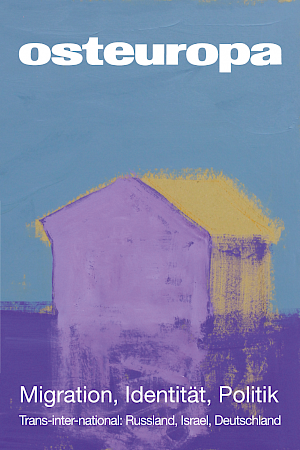Affiliation and religiosity
Psychological wellbeing among Jewish migrants
Yuriy Nesterko, Heide Glaesmer
Deutsche Fassung
Abstract
Between 1989 and 2006, over 1.6 million people with Jewish roots migrated from the USSR and its successor states. Most of them moved to Israel, while Germany accepted over 205,000 Jewish immigrants. The political, socio-economic and ethno-cultural conditions differ in the two host countries. Differences can also be observed with regard to the cultural and ethnic affiliation and religiosity of the Jewish migrants. Despite this, the extent to which affiliation and religiosity affect the psychological wellbeing of these people cannot be empirically proven. Specific migration-related factors such as the degree of integration or the level of discrimination experienced have a direct influence on their psychological wellbeing.
(Osteuropa 9-11/2019, pp. 301–315)



